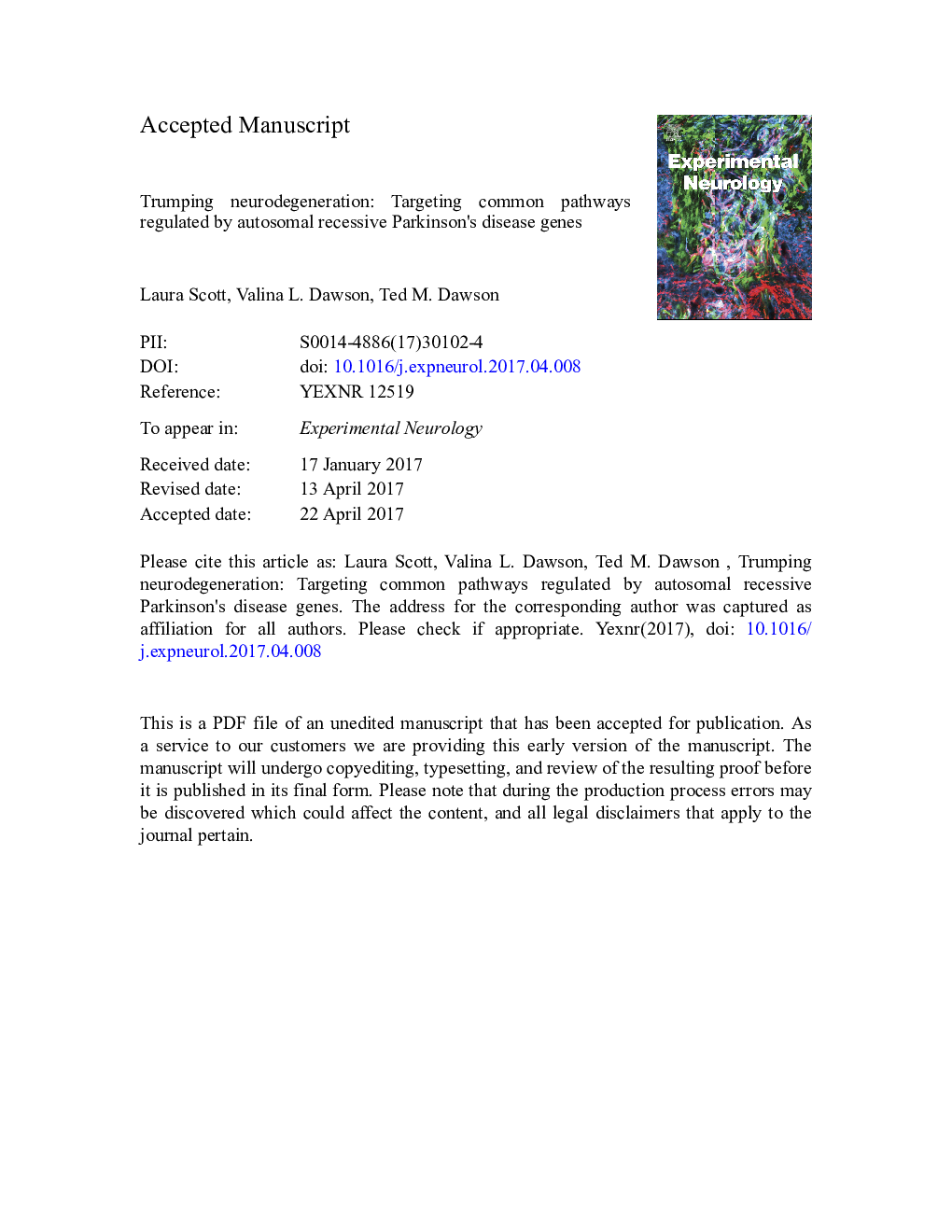| Article ID | Journal | Published Year | Pages | File Type |
|---|---|---|---|---|
| 8684799 | Experimental Neurology | 2017 | 50 Pages |
Abstract
Parkinson's disease (PD) is a neurodegenerative movement disorder characterized by the progressive loss of dopaminergic (DA) neurons. Most PD cases are sporadic; however, rare familial forms have been identified. Autosomal recessive PD (ARPD) results from mutations in Parkin, PINK1, DJ-1, and ATP13A2, while rare, atypical juvenile ARPD result from mutations in FBXO7, DNAJC6, SYNJ1, and PLA2G6. Studying these genes and their function has revealed mitochondrial quality control, protein degradation processes, and oxidative stress responses as common pathways underlying PD pathogenesis. Understanding how aberrancy in these common processes leads to neurodegeneration has provided the field with numerous targets that may be therapeutically relevant to the development of disease-modifying treatments.
Related Topics
Life Sciences
Neuroscience
Neurology
Authors
Laura Scott, Valina L. Dawson, Ted M. Dawson,
